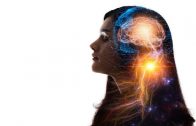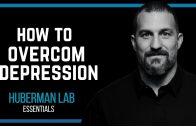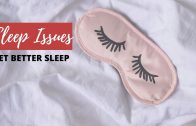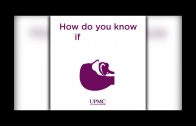What Happens to Your Brain When You Don’t Get Enough Sleep?
For millennia, philosophers and scientists have tried to unravel the mystery of sleep and dreams. Some researchers believe that sleep helps us consolidate memory and learn new things, while others suggest that we need a break from thinking so that the brain can process information or recover from a busy day.
You spend about 2 hours each night dreaming and while many of us may feel that our dreams have special meaning or a useful purpose, science has been more sceptical of that claim. Dreaming serves its own important functions in our well-being. It is like overnight therapy that also enhances creativity and problem-solving. This, according to Matthew Walker, Professor of Neuroscience and Psychology at the University of California, Berkeley, and Founder and Director of the Center for Human Sleep Science.
His research is focused in solving the mystery of why sleep matters and the role of sleep in human health and well-being.
Most adults need 7-9 hours of sleep a night, but after age 60, night-time sleep tends to be shorter, lighter, and interrupted by multiple awakenings. It is a known fact that if we do not get enough sleep, our performance deteriorates and it becomes harder to pay attention or concentrate. In addition, circumstances like depression or stress can lead to insomnia and many other sleep disorders. Sleep deprivation has been linked to a variety of health problems, including diabetes, obesity and cardiovascular disease.
The cumulative effect of not getting enough sleep is called sleep debt. A large sleep debt may lead to mental or physical fatigue. According to Walker, a lack of sleep will actually prevent your brain from being able to initially make new memories, so it’s almost as though without sleep the memory inbox of the brain shuts down and you can’t commit new experiences to memory. In addition, sleep is essentially the pillar of healthy emotion regulation. This is because sleep allows us to integrate and process the emotional events and social interactions of the previous day. Without this crucial step, you walk around emotionally disoriented – a state that can lead to chronic stress and depression. Sleep is also a time when your body builds up energy reserves for your next waking day. Sleep deprivation makes it harder to maintain healthy blood sugar levels which can result in fatigue, low moods, and poor concentration.
So, what can you do to sleep better at night?
According to Walker, certain specific actions will help you get better sleep that is also proven to be good for your health.
Besides the common advice of avoiding caffeine and nicotine late in the day and alcoholic drinks before bed, think of your bedroom as a dark prehistoric cave. Get rid of all your electronic devices from your bedroom. Because, even if you manage to fall asleep by watching videos on your phone, computer or TV, that might be the reason that you wake up with a headache and feeling tired in the morning.
#sleep #science #sciencetime
SUBSCRIBE to our channel “Science Time”: https://www.youtube.com/sciencetime24
SUPPORT us on Patreon: https://www.patreon.com/sciencetime
BUY Science Time Merch: https://teespring.com/science-time-merch
Sources:
Why We Sleep: Unlocking the Power of Sleep and Dreams Matthew Walker , PhD
Hardcover, 1st edition, 368 pages – Published October 3rd 2017 by Scribner
https://vcresearch.berkeley.edu/research-unit/center-human-sleep-science
https://www.ninds.nih.gov/Disorders/Patient-Caregiver-Education/Understanding-Sleep
https://www.healthline.com/health/sleep-deprivation/effects-on-body#Treatment-for-sleep-deprivation
Why we sleep, science of sleep & dreams – Talks at Google – Matthew Walker https://youtu.be/aXflBZXAucQ


























